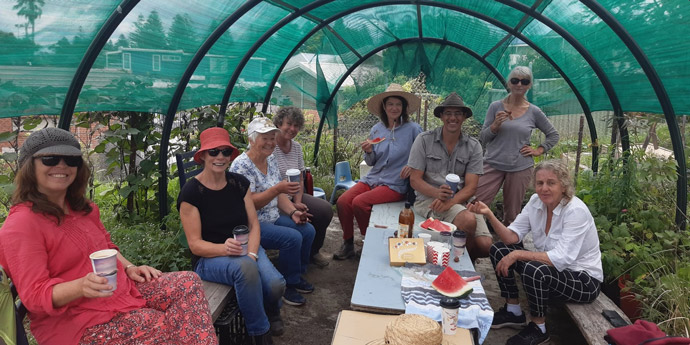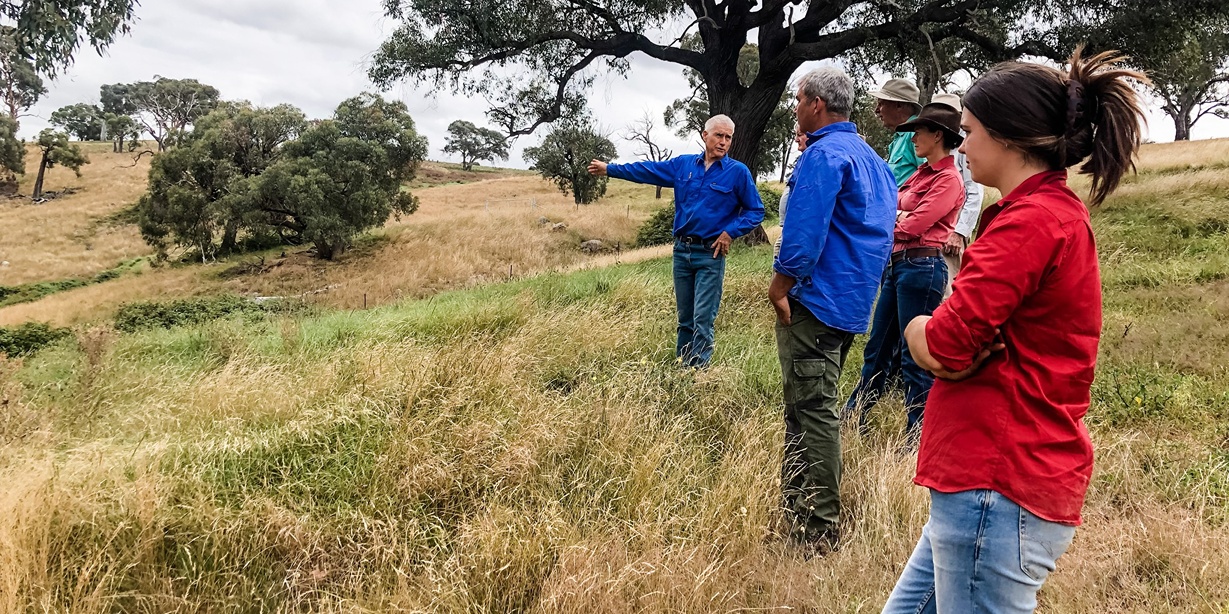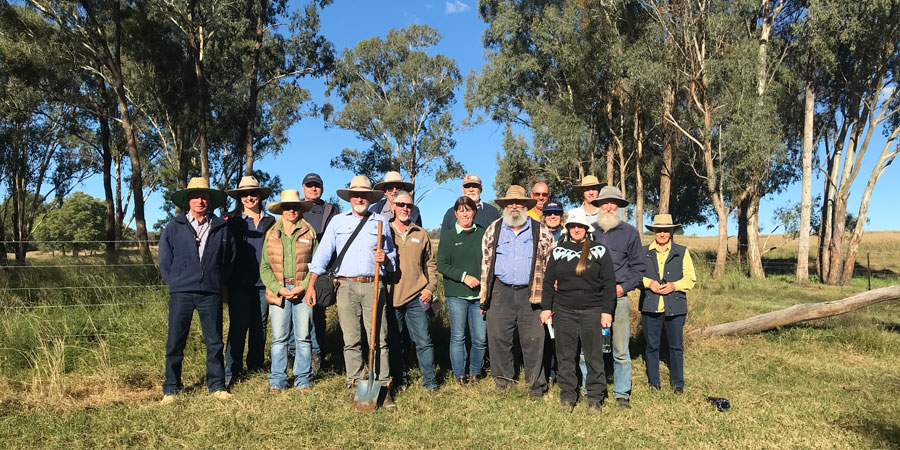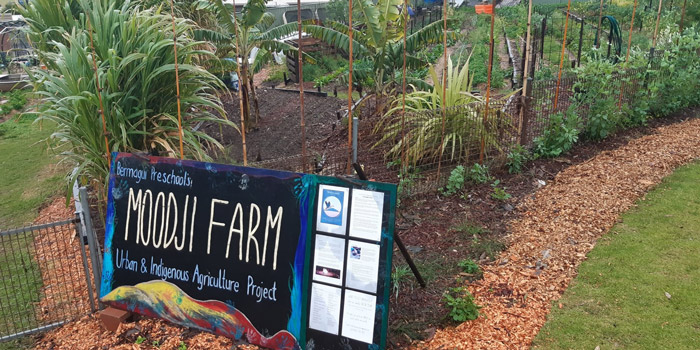About this case study
Drought
Communities, land and water managers
Community engagement
Moodji farm is a thriving hub for people of all ages, Indigenous and non-Indigenous communities to come together to develop climate resilience, engage in Indigenous culture and learn about growing food in a climate responsive way.
We’ve all experienced climate change. We’re adapting and responding and are stronger for it.
Daniel Bakker
Moodji (meaning ‘friend’ in the native Djiranganj language) farm is a fully operational urban & Indigenous farm through which people of all ages and backgrounds can come together to share histories, care-for-country and learn from each other through the growing of local food.
Located on Merrimans Aboriginal Lands Council land adjoining Bermagui Preschool, the farm is managed in partnership with with the traditional owners, Bermagui preschool and the Moodji’s volunteers to provide a wonderful intergenerational and cultural melting pot that allows each to learn more about what it means to care for country.

Over the past several years, enduring drought, bushfires, water restrictions, unprecedented wind and rain events and compounding covid restrictions highlighted the need to educate the children and community, through workshops and events, on how to adapt to the ever-changing climate and the economic instability in the community that results.
‘The children are deeply engaged in the farm, the Indigenous advisors and the community of volunteers who come together to tend to the patch and work hand-in-hand with the pre-schoolers. They just love it and take what they learn at the farm home’, says Narelle Myers, Bermagui Preschool’s Director.
Integrating Indigenous practices with contemporary agriculture demonstrates to the pre-schoolers and volunteers that sensitive biological ecosystems can be retained.
‘By including natural fibre production in our programming, we can demonstrate how a textile can be grown, made, refined, applied and then later returned to the soil’ says Moodji Farm’s Project Manager and Permaculture specialist, Daniel Bakker.
Our yield has increased significantly with the new irrigation system and will dramatically increase as we come out of COVID-19 due to the work our skilled volunteers have put in.
Daniel Bakker
The COVID -19 pandemic presented challenges for Moodji, but in the spirit of resilience, the team focussed on building up the skills and capabilities of a dozen volunteers who were socially isolated. For five hours every week, these volunteers learned about a wide range of climate resilient plant variants, how to propagate successfully and how to best manage the coup, relishing in the connection to community and country during a very difficult pandemic period.
‘We now have an incredible team of highly skilled volunteer gardeners who manage the farm and work with our Bermagui preschoolers’, says Mr Bakker
‘By having Indigenous and non-Indigenous seniors and the pre-schoolers work together we can reinstate wisdom systems that have been undermined by societal segregation, which is fantastic’, continues Mr Bakker.
As part of the grant funding, the farm also incorporated an enhanced water harvesting and irrigation system, added 6 additional composting systems and 3 different worm farms which supported a program of redesign and re-orientation to ensure responsiveness to climate change.
The farm is an exemplary working model of integrating sustainable food production and Indigenous heritage thinking that considers the future of the Bermagui preschoolers, now and tomorrow.
The community got a taste of what the impacts of climate change would mean, highlighting the need for us to adapt the farm to an ever-changing climate. We’ve done this and we’re stronger for it.
Daniel Bakker
This project was funded by an Increasing Resilience to Climate Change grant from the NSW Government.
Case studies
Murray River Council and WMLIG are finding adaptation with projects that grow jobs and agricultural productivity, protect biodiversity and build social capital.

Bowning and Bookham Districts Landcare spent two years building strong networks so the community is ready for local climate changes including drought.

Climate stresses have prompted Landcare to rethink farming practices and how resilient and productive rural landscapes, economies and communities are possible.
